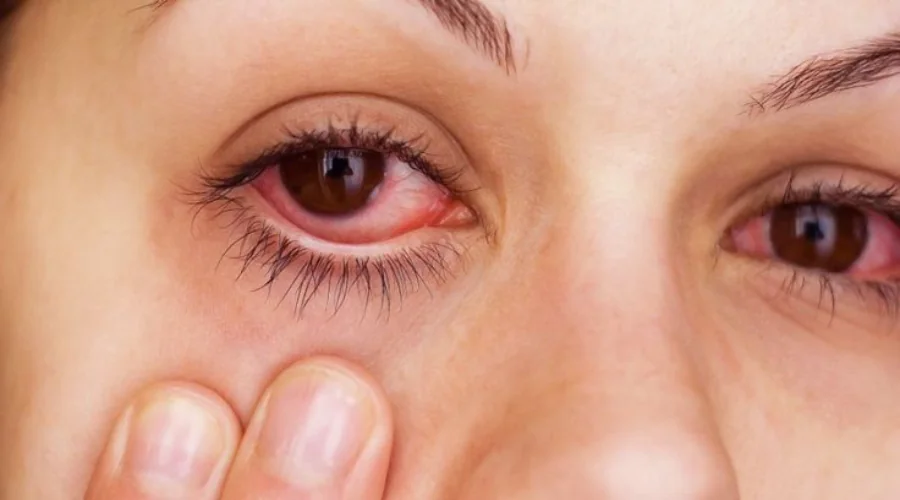
- 06 Jun
- 2022
Ilustrasi gambar (Shutterstock)
Is Eye Pain Contagious? This is the Explanation of the Lecturer of FK UM Surabaya
In recent months, red eyes are endemic in society, ranging from infants to adults who suffer from it. Conjunctivitis is red eye due to inflammation of the transparent membrane that lines the surface of the eyeball. In addition to red eyes, conjunctivitis is often accompanied by excessive eye discharge or discharge, swelling, itching and watering without decreased vision or visual acuity.
Rini Kusumawardhany, a lecturer at the Faculty of Medicine (FK) UM Surabaya, who is an eye specialist, explained that based on the time of day, conjunctivitis is divided into acute and chronic. In acute conditions, symptoms last up to four weeks, whereas in chronic conjunctivitis, symptoms last more than four weeks. Conjunctivitis is also distinguished based on its causes, namely infection and non-infection.
"The most common causes of infectious conjunctivitis are viruses and bacteria, while the non-infectious group is caused by allergies and other secondary inflammation," explained Rini Monday (6/6/22)
According to him, conjunctivitis is often caused by a viral infection (viral conjunctivitis), where in the adult population, 80% of cases of acute conjunctivitis are caused by viruses. Allergic conjunctivitis caused by allergic reactions, for example due to dust, mites, glue in eyelash extension procedures, and pet dander.
Rini also explained that there are several triggering factors that can increase the likelihood of suffering from conjunctivitis, one of which is age. Children are prone to contracting conjunctivitis because they often interact with their friends at school.
Furthermore, those who are easily infected are someone who has diabetes. This disease makes the immune system decrease. The use of contact lenses and someone who has a history of cough and cold fever or respiratory infections are also easily infected.
Bacterial conjunctivitis is treated with both topical and oral antibiotics, while allergic conjunctivitis that is not accompanied by a secondary infection is treated with anti-allergy or antihistamines. Meanwhile, viral conjunctivitis does not require special treatment because it will heal by itself.
"However, during an outbreak, prophylactic antibiotic eye drops are given to prevent worsening and relieve symptoms. Sufferers can also compress their eyes with warm or cold water to reduce swelling and other complaints," said Rini again.
He also shared tips that can be done to prevent transmission of conjunctivitis, including washing your hands regularly and not touching your eyes directly, especially after shaking hands or touching someone with conjunctivitis. Use cotton with warm water to clean eye discharge.
Do not share cosmetics, towels or other personal items with household members or other people. Several cases occurred when the use of cosmetics was alternated, such as during mass weddings, graduations, and the use of cosmetics that had been open for a long time or had expired.
He also recommends changing your sheets and pillowcases once a week. The accumulation of microscopic substances and germs on the sheets and pillowcases that we use becomes a medium of transmission including dead skin cells and dust mites
"Do not use eye drops that have been used for red eyes, to avoid transmitting viruses or bacteria. Eye drops that have been opened should not be used again after 1 month,” he explained.
Finally, conjunctivitis can be a sign of infection with the corona virus that causes COVID-19. Therefore, if you have conjunctivitis, you should consult a doctor so that the cause can be ascertained.










(0) Comments